- Home
- Chris Ryan
Global Strike
Global Strike Read online
Chris Ryan was born near Newcastle in 1961. He joined the SAS in 1984. During his ten years there he was involved in overt and covert operations and was also sniper team commander of the anti-terrorist team. During the Gulf War, Chris Ryan was the only member of an eight-man unit to escape from Iraq, where three colleagues were killed and four captured. It was the longest escape and evasion in the history of the SAS. For this he was awarded the Military Medal. For his last two years he selected and trained potential recruits for the SAS.
He wrote about his experiences in the bestseller The One That Got Away, which was adapted for the screen, and since then has written three other works of non-fiction, fifteen bestselling novels and a series of children’s books. He has also created a number one bestselling series of ebooks, Chris Ryan Extreme. He lectures in business motivation and security, and is a consultant for a security organisation.
Also by Chris Ryan
Non-fiction
The One That Got Away
Chris Ryan’s SAS Fitness Book
Chris Ryan’s Ultimate Survival Guide
Fight to Win
Safe
Fiction
Stand By, Stand By
Zero Option
The Kremlin Device
Tenth Man Down
Hit List
The Watchman
Land of Fire
Greed
The Increment
Blackout
Ultimate Weapon
Strike Back
Firefight
Who Dares Wins
The Kill Zone
Killing for the Company
Osama
In the Danny Black Series
Masters of War
Hunter Killer
Hellfire
Bad Soldier
Warlord
In the Strikeback Series
Deathlist
Shadow Kill
Chris Ryan Extreme
Hard Target
Night Strike
Most Wanted
Silent Kill
Global Strike
Chris Ryan
www.hodder.co.uk
First published in Great Britain in 2018 by Coronet
An imprint of Hodder & Stoughton
An Hachette UK company
Copyright © Chris Ryan 2018
The right of Chris Ryan to be identified as the Author of the
Work has been asserted by him in accordance with
the Copyright, Designs and Patents Act 1988.
All rights reserved. No part of this publication may be reproduced,
stored in a retrieval system, or transmitted, in any form or by any
means without the prior written permission of the publisher, nor be
otherwise circulated in any form of binding or cover other than that
in which it is published and without a similar condition being
imposed on the subsequent purchaser.
All characters in this publication are fictitious and any resemblance
to real persons, living or dead is purely coincidental.
A CIP catalogue record for this title is available from the British Library
ISBN 978 1 444 78380 3
Hodder & Stoughton Ltd
Carmelite House
50 Victoria Embankment
London EC4Y 0DZ
www.hodder.co.uk
Contents
ONE
TWO
THREE
FOUR
FIVE
SIX
SEVEN
EIGHT
NINE
TEN
ELEVEN
TWELVE
THIRTEEN
FOURTEEN
FIFTEEN
SIXTEEN
SEVENTEEN
EIGHTEEN
NINETEEN
TWENTY
TWENTY-ONE
TWENTY-TWO
TWENTY-THREE
TWENTY-FOUR
TWENTY-FIVE
TWENTY-SIX
TWENTY-SEVEN
TWENTY-EIGHT
TWENTY-NINE
THIRTY
THIRTY-ONE
THIRTY-TWO
THIRTY-THREE
THIRTY-FOUR
THIRTY-FIVE
THIRTY-SIX
THIRTY-SEVEN
THIRTY-EIGHT
THIRTY-NINE
FORTY
FORTY-ONE
FORTY-TWO
FORTY-THREE
FORTY-FOUR
FORTY-FIVE
FORTY-SIX
FORTY-SEVEN
ONE
‘I need your help.’
Terence Cooper sat bolt upright in his office on the third floor of the British embassy in Washington DC and gripped the phone hard. He recognised the voice on the other end of the line instantly. They’d spent more than twenty years working together at MI6, often operating on the same teams in the same dark, hostile corners of the earth.
A long time ago now, Cooper thought.
‘Charles?’ he almost-whispered. ‘Is that you? What the—’
‘There’s no time,’ Charles Street interrupted. ‘Listen, I think I’ve found something. Something big.’
Cooper hesitated. A hundred questions pinballed around inside his head. He wondered what Street had been doing for the past six years. Where he lived now. If he’d ever remarried. Then he detected the note of anxiety in his friend’s voice and decided the small talk could wait.
‘How big, exactly?’ he asked.
‘On a scale of one to ten? Nuclear.’
‘You’re sure?’
‘I wouldn’t be calling you if I wasn’t.’ Street paused for a beat. ‘I need your help, Terry.’
‘Are you in trouble?’
‘No,’ Street replied. ‘Not yet. But this thing is too big to keep to myself. I need another pair of eyes on it, and I don’t know who else to turn to. You’re still in the loop at Vauxhall. I need your advice.’
Cooper shifted his considerable weight in his executive leather chair. ‘And I presume that whatever it is you’ve discovered, you don’t wish to discuss it over the phone.’
‘No.’
‘Then we should meet. When are you next in town, old boy?’
‘I’m here now,’ Street said. ‘My flight got in last night.’
‘You should have told me.’
‘I am. What are you up to now?’
‘Nothing that can’t be shifted. Not for an old friend.’
‘I’ll be there in thirty minutes,’ Street said.
Twenty-eight minutes later, Charles Street stepped out of the rented Toyota Corolla into the oppressive heat of DC in July. He snatched up the brown A4 envelope lying on the passenger seat, hit the lock button on the key fob and made his way up Observatory Circle. A hundred metres away stood the main security gatehouse, situated on the eastern side of the grounds of the British embassy. The air was so hot and heavy he felt like he was wading through a swamp. DC in the summer, thought Street.
The damn weather.
A one-lane driveway led down past the gatehouse into the embassy parking lot. The driveway was reinforced with a red-and-white arm barrier and a flashing traffic light and a load of stop signs. Beyond it there was an automatic road blocker mounted on a hydraulic platform, designed to stop vehicles dead in their tracks. Street approached the sentry hut and handed over his passport to the duty officer inside. The guy gave him an inquiring look and made a big show of studying his ID, as if he’d just received special intelligence that Isis had gone on a recruitment drive with greying, fifty-something white men wearing cheap suits. He checked Street’s name against something on his computer screen. A list of approved visitors, Street guessed. Then the guard handed back his pas
sport and waved him through with a grunt.
The chancery building loomed directly in front of Street, a seven-floor rectangular slab of concrete and glass that looked like the regional office of a big accountancy firm. An architectural afterthought. Most passing tourists associated the British embassy with the Ambassador’s Residence, the Georgian pad overlooking Massachusetts Avenue, but Street knew the real action went on deep inside the drab chancery situated to the north-west. Within those walls dozens of embassy staff were hard at work, keeping tabs on assets, monitoring safe houses and feeding int back to the brains trust at MI6. Street knew all this, because he’d once worked in that same building.
Back when I still had a career to speak of.
Before everything turned to shit.
He’d joined Six straight from university and spent his early years in DC as an analyst before being assigned to Moscow. There Street had risen steadily through the ranks, eventually becoming head of the Russia Desk in the mid-1990s. He‘d been the rising star at Vauxhall then, destined to one day become Chief of MI6. Then the roof crashed in on his world.
Two agents had been found dead in a Moscow backstreet after their cover was blown. An internal investigation was launched and they’d taken a long hard look at Street. He’d been shagging one of his local assets at the time, and although they could never prove anything there were rumours that the asset had been the source of the leak. Rumours that had been strong enough to derail Street’s career. Six months later, he found himself out of a job. He’d spent the years since in the wilderness, doing irregular contract work for private security firms, pulling together reports from his dwindling pool of Russian contacts. Now hardly anyone bothered to return his calls. Charles Street, ex-MI6 high-flier, was yesterday’s man.
He beat a path towards the entrance, passed a decorative red telephone box and stepped into the cryogenic cool of the reception. The décor inside the embassy was Late-Nineties Call Centre. Everything was bland and functional and corporate. The walls were battleship grey. So was the floor. The furniture was blocky and seemed to come exclusively in shades of beige.
Street gave the receptionist his name and got a lanyard with a visitor’s tag in return. A skinny guy with a man-bun swiped him through the barrier and they rode the lift to the third floor. Man Bun led him down several identical-looking corridors, all with the same worn carpet and the same anaemic ceiling-panel lights.
They arrived outside a grey office door with stippled glass panelling to the left and a plain name plate fixed above the chrome handle.
TERENCE J. COOPER, CULTURAL ATTACHÉ, the plate read.
Man Bun nodded and left.
Street stopped outside and made himself presentable. Not easy, when you look like shit. He adjusted his tie, fiddled with his collar and brushed off a speck of dirt from his jacket lapel. Then he rapped his knuckles twice on the door. There was a moment’s silence before a voice called out from the other side.
‘Come in.’
Street took a deep breath and stepped into the office of the friend he hadn’t seen in six years.
The room was just as drab as the rest of the building. A plain white desk occupied the middle of the floor space, with a metal bookshelf fitted to the wall on the right. Window to the left, offering a view of the leafy grounds of the US Naval Observatory. There was a faded Union Jack flag hanging from a pole next to the window. The office looked like it belonged to a small-town solicitor, rather than the senior agent for MI6 in the US.
There were the usual framed family pictures on the desk. Street noticed one of Cooper with his wife and two teenage boys, posing in front of the Grand Canyon. Next to the family snap, an old photo caught his eye. A faded shot of Street and Cooper on a fishing trip, twenty years earlier. They were standing beside a lake on a bright summer’s day, Cooper looking on and smiling while Street held up his prize catch. Street was pleasantly surprised, and touched, that his old friend had not only hung on to the photograph, but kept it on display.
Terry Cooper stood up from his executive chair and spread his arms in a greeting. The smile on his lined face was big and warm and genuine. There was no awkward hesitation between the two of them. No preamble. They just moved towards each other, met in front of the desk and hugged fiercely. Then Cooper took a step back from his friend.
‘Charles.’
‘Terry.’
‘Christ, old boy. How long has it been now?’
‘Too long.’
Cooper nodded. ‘You look well.’
Which was a lie, Street knew. He hadn’t looked any kind of good in a long time. Not since he’d left the security services, more than a decade ago. His suit was so shiny it looked like it had been stitched together from a bunch of old bin liners. His brown leather brogues were badly scuffed. His thinning brown hair had been worked into the world’s lamest combover. His appearance was that of a guy on the downward slope of his life, trying to maintain what little dignity he had left.
This is what happens when Vauxhall decides to get rid of you, Street thought to himself bitterly. Twenty-two years at MI6, and he had nothing to show for it except a crap pension and a rundown flat on the edge of Willesden Green.
I might as well have a sign around my neck that says ‘Desperate ex-spy’.
One glance at Cooper told Street that his old colleague had gone in the other direction. Up, not down. His suit looked as if it had been tailor-made on Savile Row. His shoes had been polished to within an inch of their lives. His grey hair was stylishly ruffled and his chiselled jaw was so square you could have cut through timber with it. His eyes had a steely glint about them. Cooper looked like the playboy son of an ageing billionaire, readying himself to take over the family business.
None of which surprised Street. While he’d been busy wrecking his career by screwing around with Russian assets, Cooper had kept his nose clean. He wasn’t the most talented agent at Vauxhall, but he’d been the perfect fit for the security services’ new sleek, corporate image. Cooper had played it straight, kept his head down and toed the party line. Eighteen months ago, he’d been rewarded with a promotion to Head of MI6 ops in the US, working under diplomatic cover at the embassy. Now there was even talk of him one day taking over as the new Chief.
That’s why Cooper is wearing a thousand-dollar suit, and you’re dressed like an office junior, thought Street. Because he played by the rules, while you pissed all over them.
Cooper chucked a stick of nicotine gum into his mouth and gestured to the utilitarian chair facing his desk.
‘Please, Charles. Have a seat. Water? Green tea? I’d offer you something stronger, but I’m off the drink these days. One needs to keep a sharp mind in this job,’ he said with an ironic grin.
Street smiled at the last comment. A private joke. Something their old boss at Vauxhall used to say, inevitably prompting an eye-roll from Cooper or one of the other young officers.
‘I’m fine,’ said Street. ‘How’s the family?’
‘Good, good,’ Cooper replied busily. ‘Stephen’s starting university next month, would you believe. Durham.’
‘They grow up quick.’
‘They do. Anna says hello, by the way. You’ll have to come around some time for dinner.’
‘I’d like that, very much.’
Street sat down opposite his old friend. He noticed several framed pictures arranged on the wall behind the desk. Most of them were newspaper clippings that showed Cooper pressing the flesh with various dignitaries: a former US president, the wife of the British prime minister, an ageing Indian tycoon. They told the same story. A guy in the prime of his life, achieving all of his goals. Looking forwards, not back.
Street made himself comfortable and laid the envelope square across his lap. Cooper glanced at it before looking up at the former agent. There was a look of concern in his eyes, Street noticed. As if he was worried about something.
Or maybe I just look worse than I thought.
‘You should have told me you were
coming to town,’ Cooper said. ‘If I’d known, I would’ve cleared my desk. We could have even found time for a spot of fishing, you know.’
Street smiled weakly. ‘You’re still sore about that monster catfish I caught, I see.’
Cooper shook his head. ‘Eighty-nine pounds. How you ever managed to reel that thing in, I’ll never know.’
‘I got lucky. That’s all.’
‘No such thing. You were better at fishing than me, Charles. Always were.’
I’m not so lucky now, thought Street.
‘I should be done here at around six-ish,’ Cooper went on, checking his smartwatch. ‘We can catch up properly then, old boy. There’s a new rooftop bar near Dupont Circle that serves up a bloody good Old-Fashioned.’
‘Sounds great,’ Street said, anxious at the thought of getting in a few rounds of overpriced cocktails.
‘But you didn’t come here just to swap old fishing stories, did you?’ Cooper said, pointing with his eyeballs at the envelope resting on Street’s lap.
Street nodded. ‘I’ll get right to it. I’ve been freelancing for a small firm here in DC, pulling together briefings on our Russian friends. Varangian Risk Assessment.’
‘I’ve heard of them. A private security firm over in Alexandria. Small, but respectable.’
‘That’s the one.’
Cooper frowned. ‘When did this happen?’
‘A couple of months ago.’
‘You mean to say, you’ve been in town all this time?’
Street shook his head. ‘Just for a couple of briefing sessions. A day or two, here and there. I would’ve called, but it was back-to-back meetings.’
And I was too ashamed to meet up. To let one of my closest chums see how far I’d fallen.
‘I understand.’ Cooper smiled kindly. ‘Well, I’m just glad to hear you’ve found work. After everything that happened.’
Street merely shrugged. ‘It pays the bills.’
Barely, he thought.
‘What sort of work have they got you doing?’
‘Monthly reports on the state of the Russian security services. The FSB, the GRU, the foreign intelligence services. All the usual suspects.’

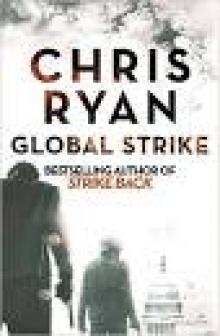 Global Strike
Global Strike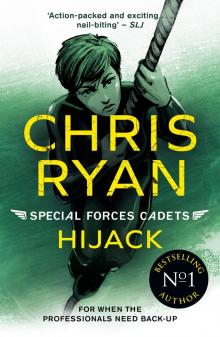 Hijack
Hijack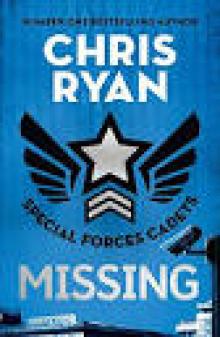 Special Forces Cadets 2
Special Forces Cadets 2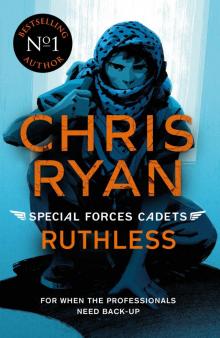 Ruthless
Ruthless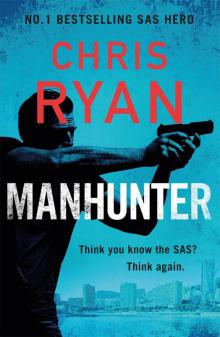 Manhunter
Manhunter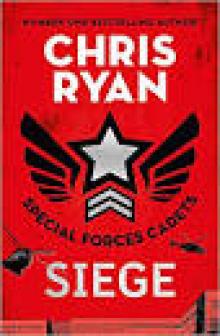 Special Forces Cadets 1
Special Forces Cadets 1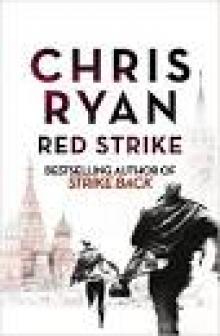 Red Strike
Red Strike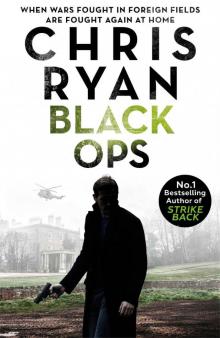 Black Ops
Black Ops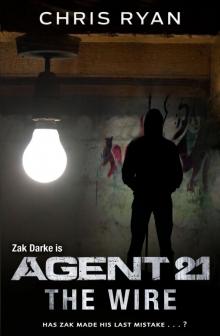 Agent 21: The Wire
Agent 21: The Wire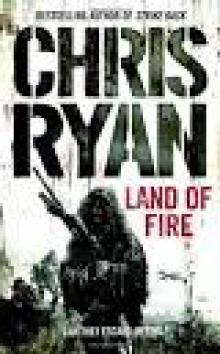 Land of Fire
Land of Fire Alpha Force: Fault Line
Alpha Force: Fault Line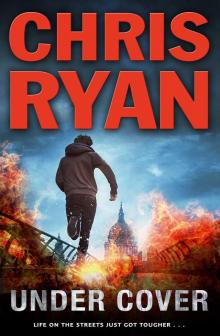 Under Cover (Agent 21)
Under Cover (Agent 21)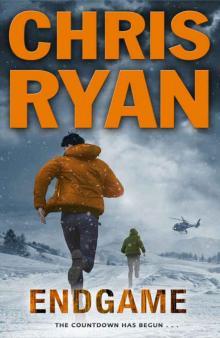 Endgame (Agent 21)
Endgame (Agent 21) Red Centre
Red Centre Blackout
Blackout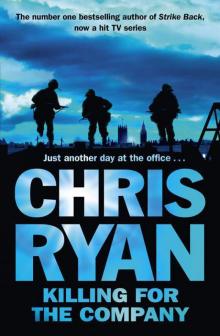 Killing for the Company
Killing for the Company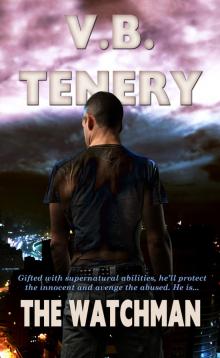 The Watchman
The Watchman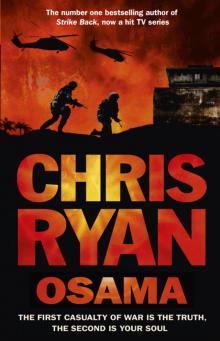 Osama
Osama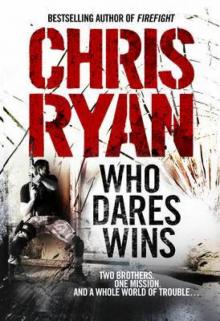 Who Dares Wins
Who Dares Wins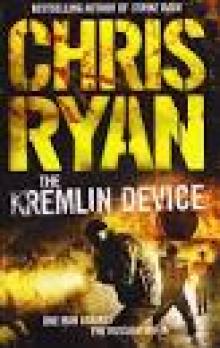 The Kremlin Device
The Kremlin Device Hunter Killer
Hunter Killer Alpha Force: Untouchable
Alpha Force: Untouchable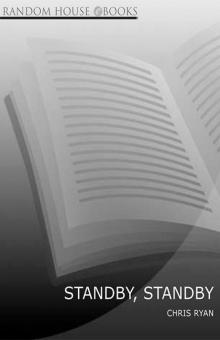 Stand By Stand By
Stand By Stand By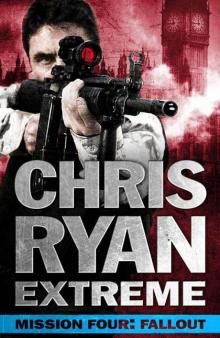 Chris Ryan Extreme: Hard Target: Mission Four: Fallout
Chris Ryan Extreme: Hard Target: Mission Four: Fallout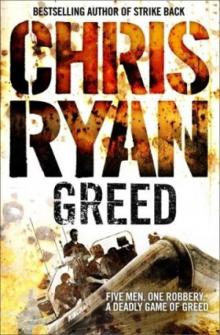 Greed mb-1
Greed mb-1 Alpha Force: Desert Pursuit
Alpha Force: Desert Pursuit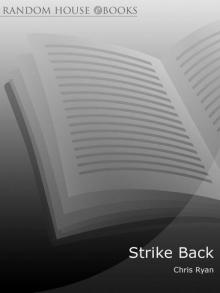 Strike Back
Strike Back Greed
Greed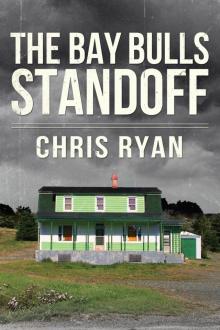 The Bay Bulls Standoff
The Bay Bulls Standoff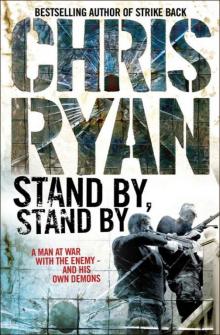 Stand By, Stand By gs-1
Stand By, Stand By gs-1 Outbreak
Outbreak Hunted
Hunted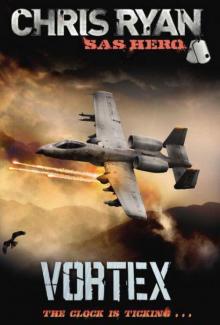 Vortex cr-4
Vortex cr-4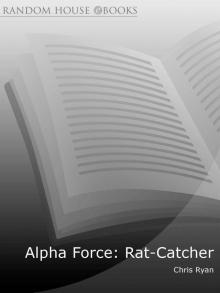 Rat-Catcher
Rat-Catcher Vortex
Vortex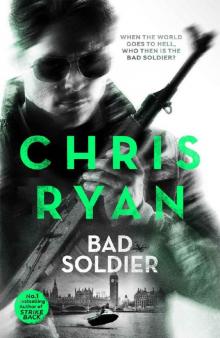 Bad Soldier
Bad Soldier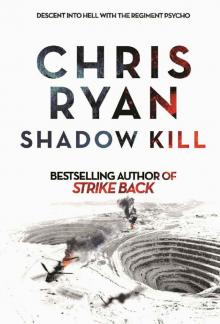 Shadow Kill: A Strikeback Novel
Shadow Kill: A Strikeback Novel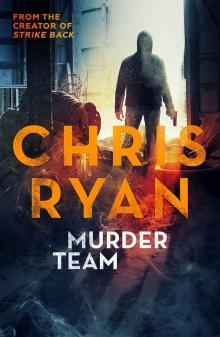 Murder Team (Kindle Single)
Murder Team (Kindle Single) One Good Turn
One Good Turn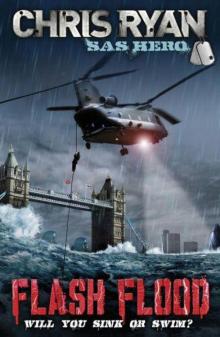 Flash Flood cr-1
Flash Flood cr-1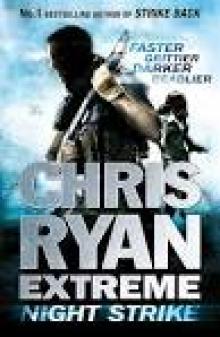 Night Strike
Night Strike Wildfire
Wildfire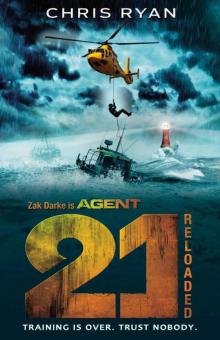 Agent 21: Reloaded: Book 2
Agent 21: Reloaded: Book 2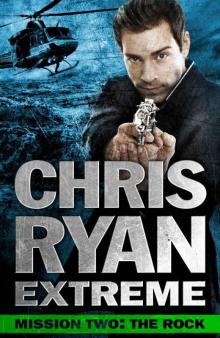 Chris Ryan Extreme: Hard Target: Mission Two: The Rock
Chris Ryan Extreme: Hard Target: Mission Two: The Rock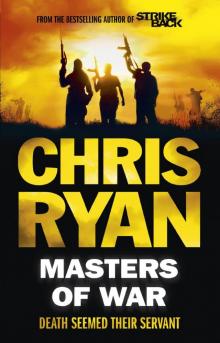 Masters of War
Masters of War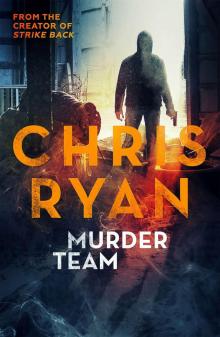 Murder Team
Murder Team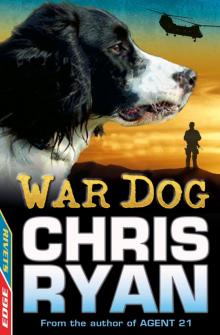 War Dog
War Dog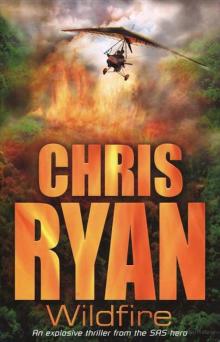 Wildfire cr-2
Wildfire cr-2 Survival
Survival The One That Got Away - Junior edition
The One That Got Away - Junior edition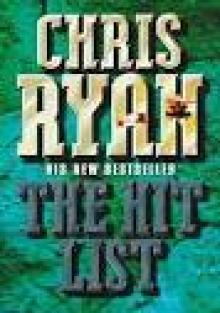 The Hit List
The Hit List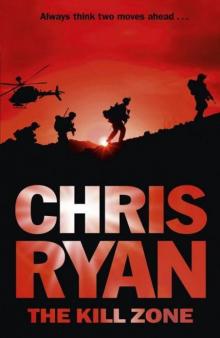 The Kill Zone
The Kill Zone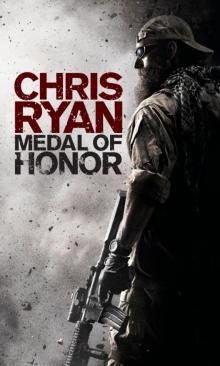 Medal of Honor
Medal of Honor Battleground
Battleground Twister
Twister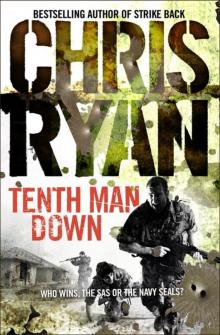 Tenth Man Down gs-4
Tenth Man Down gs-4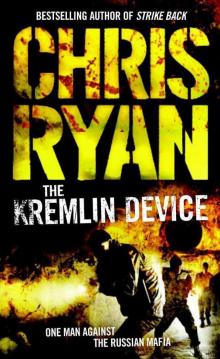 The Kremlin Device gs-3
The Kremlin Device gs-3 Hostage
Hostage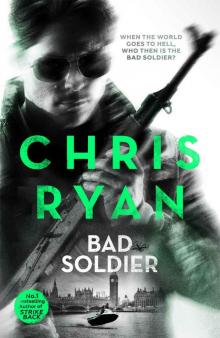 Bad Soldier: Danny Black Thriller 4
Bad Soldier: Danny Black Thriller 4 Alpha Force: Blood Money
Alpha Force: Blood Money Firefight
Firefight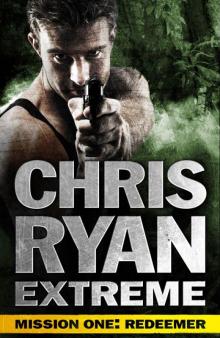 Chris Ryan Extreme: Hard Target: Mission One: Redeemer
Chris Ryan Extreme: Hard Target: Mission One: Redeemer Hit List
Hit List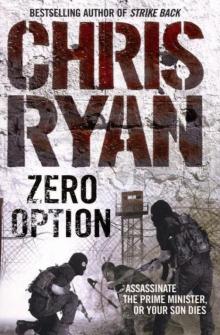 Zero Option gs-2
Zero Option gs-2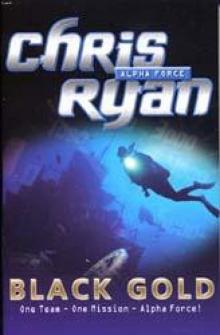 Black Gold
Black Gold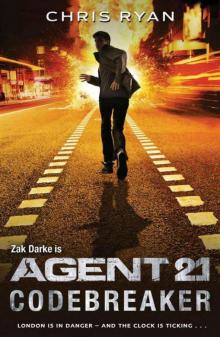 Agent 21: Codebreaker: Book 3
Agent 21: Codebreaker: Book 3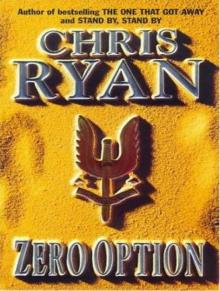 Zero Option
Zero Option Ultimate Weapon
Ultimate Weapon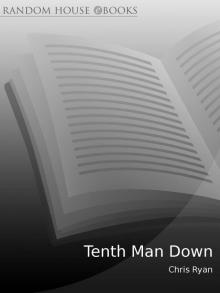 Tenth Man Down
Tenth Man Down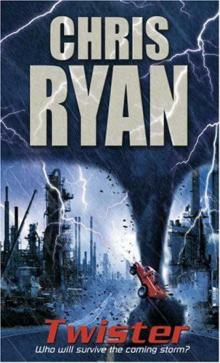 Twister cr-5
Twister cr-5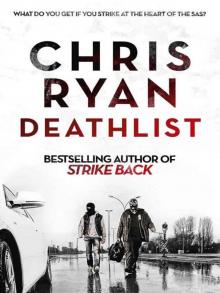 Deathlist
Deathlist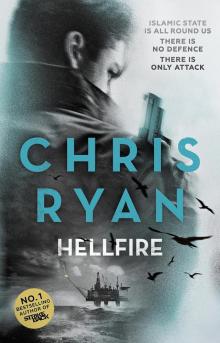 Hellfire
Hellfire Flash Flood
Flash Flood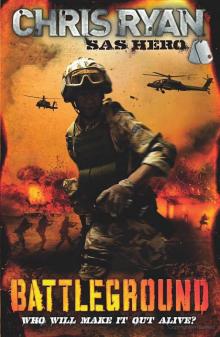 Battleground cr-6
Battleground cr-6 The Increment
The Increment